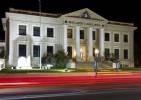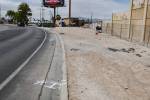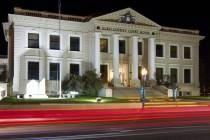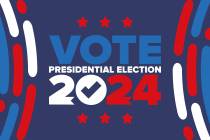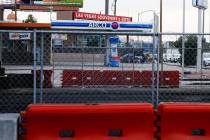Vegas prosecutors used ‘super seal’ to hide fortune seized from gamblers


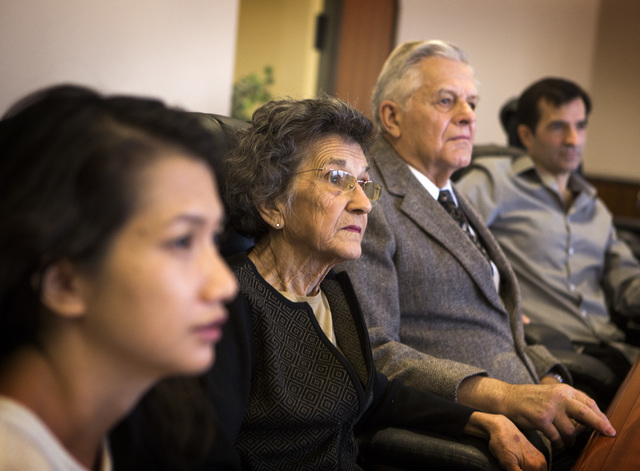

Calling their conduct “constitutionally abhorrent,” a federal judge recently chided government prosecutors for working in secret to keep millions of dollars in cash and assets seized from a Las Vegas gambler and his family in a decadelong bookmaking investigation.
In his 31-page opinion, U.S. Magistrate Judge Cam Ferenbach cast light on the little-known court process that allowed the government to file civil forfeiture actions against Glen Cobb, his 82-year-old parents and his stepdaughter under “super seal” with no notice to anyone — not even the family it targeted.
Government documents filed under super seal, a procedure overseen by the federal clerk’s office, are stored in the court’s vault and not loaded into the electronic case management system. The documents remain secret from the public and opposing parties.
Ferenbach said prosecutors sought a level of secrecy normally reserved for cases that threaten public safety or national security.
“This is unacceptable,” Ferenbach wrote in court papers only recently made public. “Relying on various sealed and super-sealed filings, the government asks the court to rule against private citizens, allow the deprivation of their property and deny them a process to redress possible violations of their constitutional rights through a secret government action that provides no notice or opportunity to be heard.
“Saying that this would offend the Constitution is an understatement. It is constitutionally abhorrent.”
The vast majority of court records are open under the long-established public right to know what its government is doing and the right of those being accused of wrongdoing to know their accusers. Sometimes individual records are sealed to protect sensitive personal information or an ongoing investigation, but the case itself remains on the public docket.
Sealing court records leads to a lack of trust on the part of the public, UNLV law professor Jeff Stempel said.
“Excessive use of sealing undermines public confidence in the courts, and I think it creates a danger of bad decision-making when there isn’t enough scrutiny,” he said.
Gregg Leslie, legal defense director for the Washington-based Reporters Committee for Freedom of the Press, said public accountability of the courts suffers when things are done in secret.
“Accountability really makes the process work,” he said. “We don’t have effective court systems if there isn’t openness.”
irs investigated since 2002
IRS agents had been investigating the Cobb family since 2002, but the bookmaking investigation first hit the courts after a December raid where agents seized $10.5 million from investment and bank accounts belonging to the Cobbs, along with computers, hard drives, cellphones and other property.
U.S. Secret Service agents separately seized $2.7 million from two safes at Glen Cobb’s home .
Defense lawyers John Kinchen, of Houston, and Kathleen Bliss, of Las Vegas, both former federal prosecutors, filed civil court papers challenging the searches, which had been authorized by Ferenbach, and seeking the return of the family’s money and property.
They also accused the government of overstepping its bounds in taking $7.7 million from an Ameritrade account belonging to Charles and Anna Cobb. Kinchen and Bliss argued the search warrant only authorized agents to take $4 million, a fact prosecutors disputed.
Prosecutors responded by filing sealed court papers asking the judge to dismiss the defense motion seeking the return of the combined $13.2 million seized.
They argued the matter should not be heard before Ferenbach but rather in the two super-sealed civil forfeiture cases, one for the money the IRS took and the other for the cash confiscated by the Secret Service. Civil forfeiture allows authorities to seize assets they believe were paid for with proceeds from crime, even if no criminal charges are filed.
Prosecutors had filed the civil forfeiture papers in the Cobb case in April and Chief U.S. District Judge Gloria Navarro secretly gave them permission to pursue the money. But the process was put on hold while the grand jury heard evidence in the criminal investigation.
At the time, prosecutors said they filed the documents under super seal to protect a confidential informant, the best friend of Glen Cobb’s wife, from being harassed by the family during the heightened investigation.
They also said they were trying to protect an undercover agent and confidential wiretap information obtained from New York police. And they explained they didn’t want the Cobbs to be able to use the civil legal process to obtain information about the investigation before charges were filed.
The New York wiretaps contained information about a massive illegal bookmaking operation on the East Coast that resulted in several arrests. Prosecutors said they included prominent Las Vegas sports betting figures Brandt England and Michael Colbert, who at the time was a top executive with Cantor Gaming.
The wiretaps revealed numerous conversations about illegal bookmaking between Cobb and England, who was an agent for Pinnacle Sports, an offshore wagering site, prosecutors alleged.
Ferenbach, however, called the attempt to prevent him from deciding the fate of the Cobb family’s money “frivolous, if not absurd.”
“It offends common sense and the fundamental tenants of the process for the government to assert that Cobb’s adequate remedy at law is a super-sealed proceeding about which the government has provided no notice and opportunity to be heard,” the judge wrote. “In fact, the government had put in place mechanisms to prevent Cobb from accessing information about the civil forfeiture actions.”
indictment halts asset hearing
The Cobbs declined comment, referring all questions to their attorneys.
Kinchen hailed the magistrate’s decision, saying he doesn’t understand why the government chose to file documents under super seal.
“It’s very rare, and this just isn’t anywhere close to the situation where that is warranted,” Kinchen said.
But the government wasn’t ready to give up. Prosecutors went to U.S. District Judge Jennifer Dorsey and filed a challenge to Ferenbach’s recommendations, which included scheduling a June 4 hearing on whether to force the government to give back the seized money and property.
The government trumped the magistrate altogether just one day before that hearing when, on June 3, it obtained a criminal indictment against Cobb, his parents and stepdaughter Monica Namnard. They were charged with running an illegal bookmaking operation and hiding more than $2.6 million from the IRS.
Dorsey quickly granted the government’s motion to cancel the asset forfeiture hearing.
Prosecutors later returned the family’s computer equipment, but not the money. Defense lawyers are now trying to get it back as part of the ongoing criminal proceedings before U.S. District Judge Andrew Gordon.
The battle over the Cobbs’ assets became public earlier this month when Ferenbach unsealed his May 15 decision and other documents. Hundreds of pages of more documents, including the civil forfeiture papers, were unsealed last week in two batches, one as late as Friday, after the Review-Journal began making inquiries.
In court papers, Assistant U.S. Attorney Daniel Hollingsworth, who handles forfeiture proceedings, said a court clerk told him years ago to file civil papers under super seal to avoid compromising a related criminal investigation.
Federal Court Clerk Lance Wilson and his top assistant, Cindy Jensen, acknowledged super-sealed documents aren’t entered into the court’s case management system and that only a couple of supervisors in their office can access them at all.
Documents filed this way often include affidavits from prosecutors seeking permission to conduct wiretaps in criminal investigations, they said.
Wilson said he did not know how many cases have been handled under super seal in his 20-year tenure at the helm of the clerk’s office, but the procedure has always been available to prosecutors.
Navarro did not return a call for comment.
U.S. Attorney Daniel Bogden said in a statement that his office “recognizes and respects the vital public interest in open judicial proceedings” and “strongly enforces” Justice Department policy in that regard.
But, he added: “There are instances, such as before persons have been charged with a crime or before assets have been identified and seized, that court papers must be filed in a manner to prevent immediate public disclosure to protect the integrity of an ongoing investigation, prevent defendants from fleeing or hiding evidence and assets, protect witnesses or other persons from potential harm, and to safeguard the right of persons to a fair trial.”
In this instance, the Cobbs were not indicted until six months after their money was seized.
“It’s distressing to find out that the government is doing this sort of stuff,” said UNLV’s Stempel, who is an expert in civil litigation. “There doesn’t seem to be any justification for it.”
Leslie, of the Reporters Committee, said his watchdog organization first noticed super sealing in federal courts around the country about a decade ago, but thought it was cleaned up in 2009, when the Judicial Conference of the United States, the policy arm of the courts, clarified rules for sealing cases.
“We thought the worst offenses were taken care of,” Leslie said.
“It seems to be right on the edge of presenting a false docket of your court work to the people. If they’re saying, ‘Here’s everything we’re working on,’ and it turns out they’re hiding things, then that’s a serious problem. If you’re going to make something sealed, there has to be a compelling state interest at stake, and the solution has to be narrowly tailored to serve that interest.”
Contact Jeff German at jgerman@reviewjournal.com or 702-380-8135. Find him on Twitter: @JGermanRJ.





